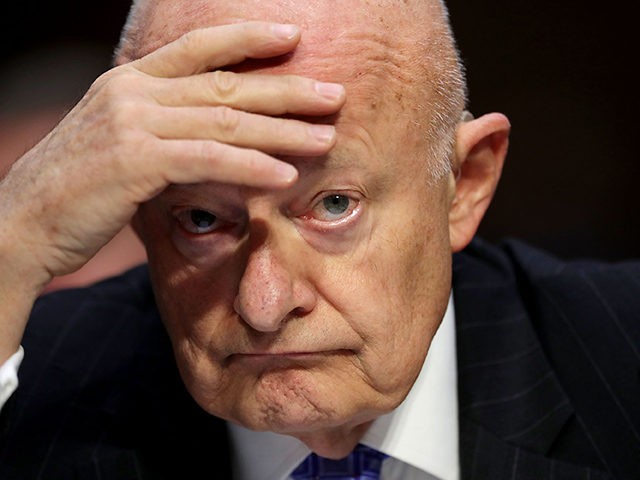Former Director of National Intelligence James Clapper on Wednesday raised the possibility that special counsel Robert Mueller’s report on his Russia investigation could be “anti-climactic.”
Appearing on CNN Wednesday morning, Clapper discussed recent remarks made by fired FBI Deputy Director Andrew McCabe regarding the possibility that President Donald Trump is a Russian “asset.” The longtime Deep Stater said that while he has speculated that the president might be a “witting asset” of Russian president Vladimir Putin, he ranks the possibility quite low.
Former Director of National Intelligence James Clapper hopes that "the Mueller investigation will clear the air," but also cautions the results might be "anti-climatic, and not draw a conclusion" https://t.co/fCl8eRvh3D pic.twitter.com/DYYuEOqKt2
— New Day (@NewDay) February 20, 2019
“You consider Putin’s background as a trained, experienced KGB agent and how he would approach somebody that he is trying to co-opt, or influence or gain leverage over, and in this case, you know, appeal to ego,” Clapper told New Day co-host Alisyn Camerota. “In that sense, in that context, is what I think of when I mean potential unwitting asset.”
Clapper said the Mueller probe will answer many questions about possible collusion between the Trump campaign and Russia during the 2016 presidential election; however, some may view its findings far from conclusive.
“I think the hope is that the Mueller investigation will clear the air on this issue once and for all. I’m really not sure it will, and the investigation, when completed, could turn out to be quite anti-climactic and not draw a conclusion about that,” he said.
Clapper, a frequent critic of President Trump, told CNN last month that the arrest of longtime political operative Roger Stone shows “coordination” and “synchronization” between Trump officials and the Kremlin, an assessment disputed by legal experts and court filings.
“The indictment does not allege that Stone had any direct communications with Assange, nor does it allege that Stone or anyone else at the Trump campaign had any direct communications with Assange or any foreknowledge of actions that WikiLeaks took,” wrote Byron York of the Washington Examiner. “At various times, Stone claimed to have foreknowledge — a hint that something big was up — but the indictment suggests that he did not, in fact, know what WikiLeaks was going to do,” he added.

COMMENTS
Please let us know if you're having issues with commenting.